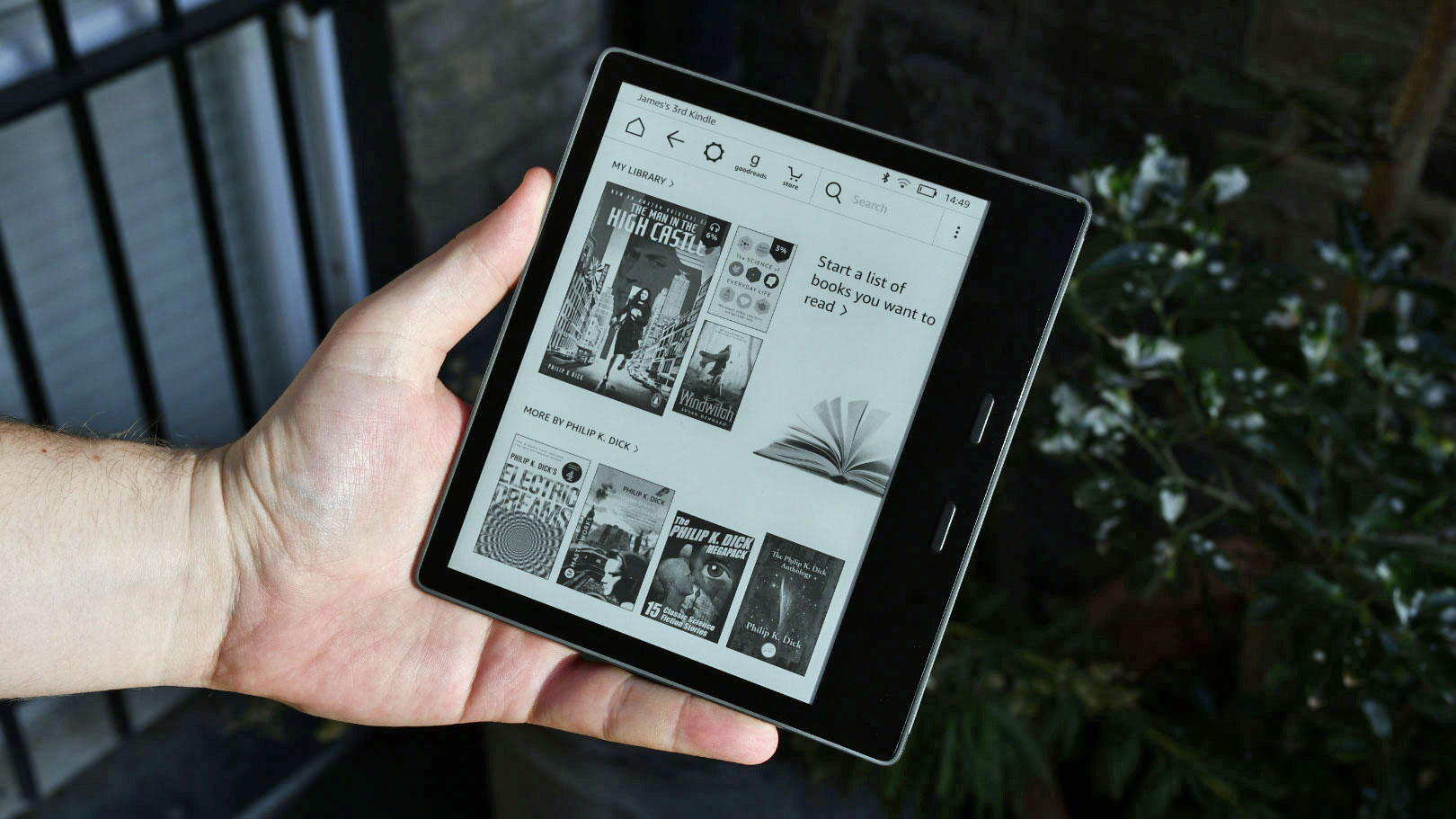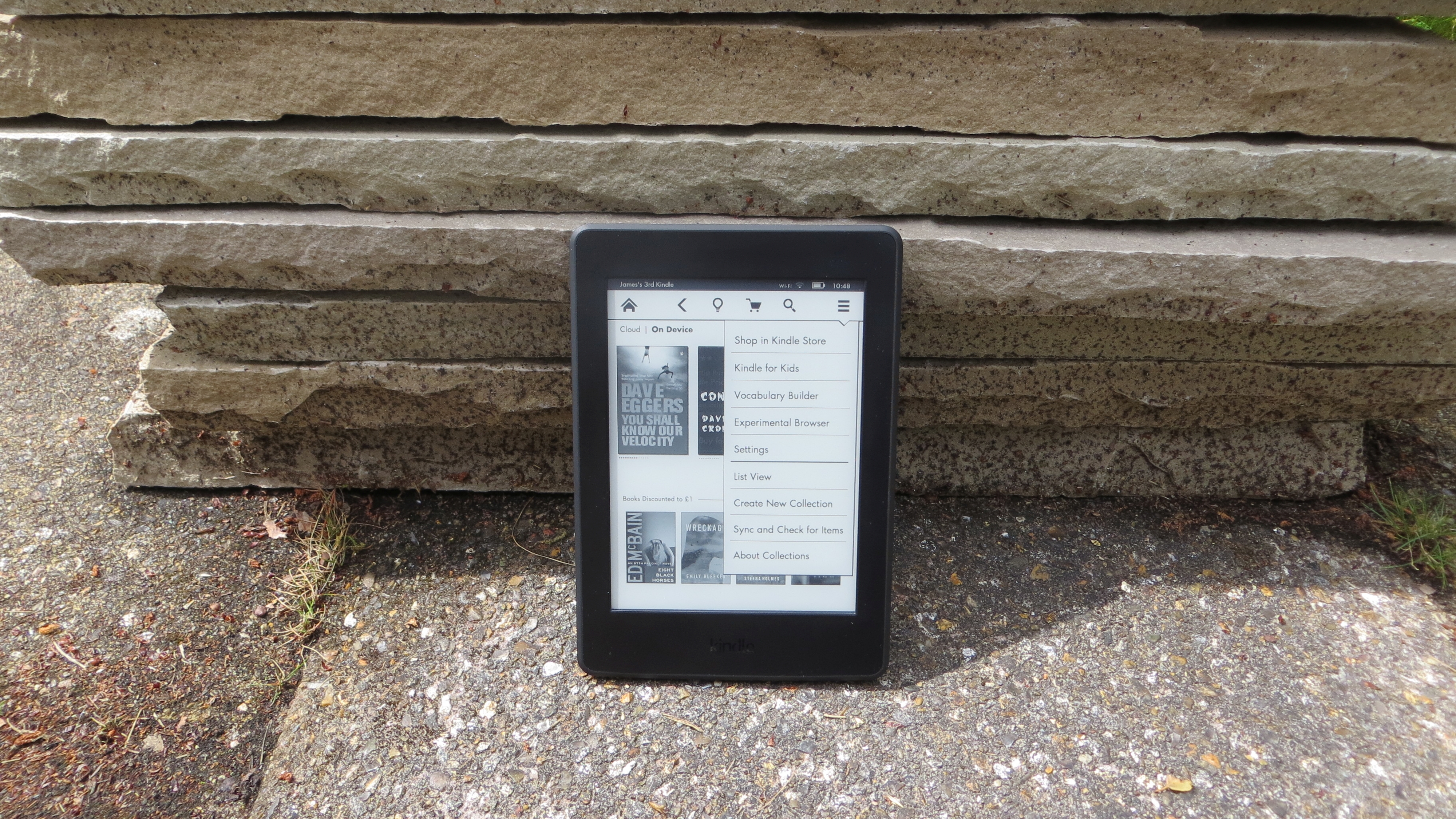Why you can trust TechRadar
The Kindle Paperwhite's main competition comes from, well, other Kindles, with the basic Kindle and the Kindle Voyage offering cheaper and more expensive alternatives respectively.
But there are a few rival brands trying to make a dent in the market, with Kobo and Nook in particular both offering a range of alternative ereaders.
Amazon Kindle Oasis

When Amazon announced the Kindle Voyage, I didn't think there could be a more expensive ereader product from the company... but I was wrong. The Kindle Oasis is the best experience you'll get with a Kindle, but it will cost you.
The Oasis is much brighter than the Kindle Voyage, which is brighter than the Paperwhite, and it has a brand new design to make it even easier to hold one handed.
But the price is through the roof at $249.99/£229.99/AU$389. If you think you'll use a Kindle every single day and want to get the best money can buy, the Kindle Oasis may well be the choice for you.
- Read our review of the Amazon Kindle Oasis
Amazon Kindle Voyage

The new Kindle Paperwhite matches the Kindle Voyage's resolution at 300ppi, so there's now less reason to choose Amazon's premium model, but there are still a few reasons for the Voyage's higher £169.99 (US$199, AU$299) starting price.
For one thing it has an ambient light sensor, ensuring the built in light is automatically adapted to provide the optimal brightness for your surroundings, which is handy and you can always turn it off if you and the Kindle disagree about what the optimal brightness is.
Sign up for breaking news, reviews, opinion, top tech deals, and more.
It's also got physical forward and back page buttons as well as the standard touchscreen ones and it packs a slightly more premium build. None of these are particularly essential features, but if price is no object the Kindle Voyage is undeniably still a better ereader than the Paperwhite.
- Read our review of the Amazon Kindle Voyage
Amazon Kindle

With prices starting at just £49.99 (US$79, AU$120) the basic Amazon Kindle is a truly entry level ereader. It has a touchscreen, but it's nowhere near as sharp as the Paperwhite's display and there's no built in light, which are two major marks against it.
If money's tight or you don't expect to use it much the Amazon Kindle is absolutely fine. It's brilliantly good value, has the same impressive library as the Paperwhite and a similarly long-lasting battery. It's also been updated to support the new typesetting engine.
But if you're an avid reader you may find yourself craving the improvements offered by the new Kindle Paperwhite and spending more money in the long run.
- Read our review of the Amazon Kindle
Nook GlowLight

If you're not sold on Kindles or want something in between the basic Kindle and the Kindle Paperwhite the Nook GlowLight could be for you.
It has a built in light of its own and a large selection of titles on its store and yet it comes in a little cheaper than the Kindle Paperwhite (2015) at around US$99. You now can't buy this in the UK though, sadly.
But with a laggy interface and a lower resolution 212ppi screen it can't quite match Amazon's latest. At around £30 cheaper it doesn't have to but I'd still be inclined to say the Kindle Paperwhite (2015) is a better buy if you can stretch to it.
- Read our review of the Nook GlowLight
Kobo Aura H2O

At around £140 (AU$229) the Kobo Aura H2O is a fair bit pricier than the new Kindle Paperwhite, almost rivalling the Kindle Voyage. But it's got a trick up its sleeve that neither of those devices can match, namely the fact that it's water and dust proof.
How important that is will largely depend on how likely you are to read in the bath or on the beach, but I'd wager that it's a useful feature for quite a lot of people.
Other than that, it's a standard yet fairly accomplished ereader, with a bright screen, a well-stocked store and good battery life, but its screen isn't quite as sharp as the Paperwhite's.
- Read our review of the Kobo Aura H2O
James is a freelance phones, tablets and wearables writer and sub-editor at TechRadar. He has a love for everything ‘smart’, from watches to lights, and can often be found arguing with AI assistants or drowning in the latest apps. James also contributes to 3G.co.uk, 4G.co.uk and 5G.co.uk and has written for T3, Digital Camera World, Clarity Media and others, with work on the web, in print and on TV.
